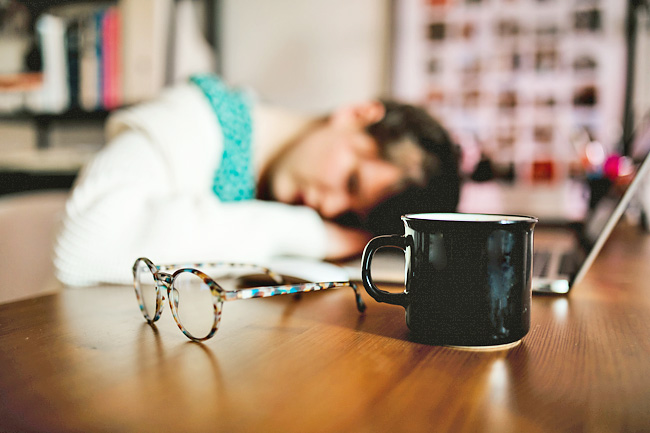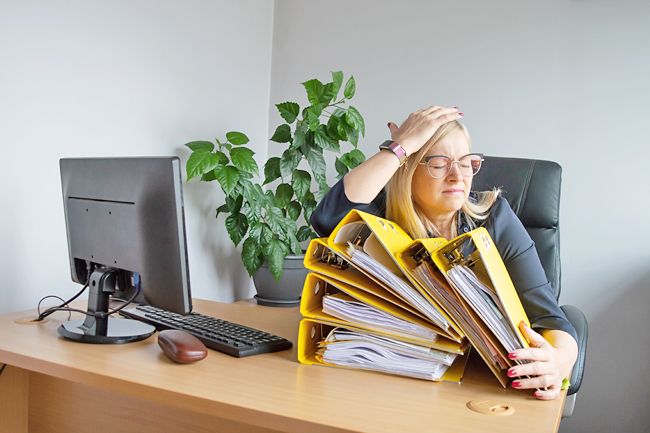Ellen Vora, Md
THE WASHINGTON POST – If you have experienced a mental health challenge over the past few years, you are not alone.
We were already in an epidemic of anxiety before the pandemic, and rates of anxiety have continued to climb precipitously. Global prevalence of anxiety and depression increased by 25 per cent in the first year of the pandemic, according to the World Health Organization.
Faced with this crisis, the mental health field offers few suggestions. The presiding consensus is that our mental health struggles are the result of a chemical imbalance written in our DNA.
The implication is that our anxiety is chemical, it’s determined by our serotonin levels, and it’s our genetic destiny. Mental health-care professionals offer medications and therapy to change our mental patterns and lift our supposed serotonin deficit.
But what if these options don’t work for you?
While some people are helped by our current offerings, the inaccessibility of therapy is at an all-time high, and far too many people struggling with their mental health experience disappointing results with medication.
Focusing on brain chemistry has led us to overlook much of what impacts our moods; the body plays a critical and often overlooked role in mental health. For those who have not found satisfactory relief from medication and therapy, this can come as good news.


The determinants of our mental well-being go beyond our genes and brain chemistry to include inflammation, gut health, sleep, nutrition, hormones, chronic limbic hyperarousal because of unresolved trauma, and even having our fundamental human needs for community, nature, meaning and purpose go unmet.
If we do have what is known as a chemical imbalance, it is probably a downstream effect of these other states of imbalance.
In other words, anxiety is not all in your head; it’s largely based in the body, and that’s where it should first be addressed.
I believe there are two types of anxiety: true anxiety (or purposeful anxiety) and avoidable anxiety.
True anxiety is our inner compass nudging us to pay attention to what’s not right in our personal lives, our communities and the world.
It’s not something to suppress or pathologize. It’s not what’s wrong with us – it’s what’s right with us when we are able to viscerally connect to what’s wrong in the world.
With true anxiety, our symptoms are communicating something to us, and this should be listened to and honored. Instead of asking, “how can I stop feeling so anxious”, we should be asking, “what is my anxiety telling me?”
There’s often a call to action baked into our true anxiety, and when we let our uneasiness fuel purposeful action, we don’t feel so mired in our anxiety.
Avoidable anxiety, on the other hand, is often as simple as our body getting tripped into a stress response, which transmits a signal to the brain telling us something is not right.
And the human brain – the consummate meaning-maker – offers a narrative for why we feel uneasy. It tells us we’re anxious because of work, or our children, or the state of the world.
But the truth is, there is always something to feel uneasy about.
And the reason we’re struck with anxiety at this moment might have nothing to do with, for example, the office, and everything to do with a state of physiological imbalance – something as seemingly benign as a blood sugar crash, a hangover, or an extra cold brew that day.
Much of our anxiety, in this sense, is unrelated to what we think it’s about.
The solution is not to chase every source of grief in the world, but to address avoidable anxiety at the level of the physical body – eliminating unnecessary stress responses and heading much of our anxiety at the pass.
When we recognize that we are experiencing anxiety precipitated by a physical stress response, we can address the problem at the level of the body, by keeping our blood sugar stable or getting to bed earlier. In other words, this kind of anxiety is common, causes immense suffering, and is mostly avoidable.
When I work with patients, I start with avoidable anxiety – it’s the low-hanging fruit.
We come up with an avoidable anxiety inventory. In a moment of peak anxiety, this list can cue them to reflect on possible causes of a sudden stress response taking over their body, help them identify the particular avoidable anxiety that might be occurring, and understand its straightforward remedy.
An avoidable anxiety inventory could include:
– Hunger
– Sleep deprivation
– Being over-caffeinated
– Gut issues
– Inflammation
– Long stretches of being sedentary
– Chemical fallout after consuming highly processed food
– Late luteal phase (the days before the bleeding phase of the menstrual cycle)
– Inter-dose withdrawal (the pharmacologic low-point when you’re due for your next dose of a psychiatric medication)
Identifying when our anxiety has a physical basis doesn’t make our problems go away.
But it can help us recognise when physiological imbalance is making everything feel a bit more overwhelming than it actually is.
This inventory allows us to address the causes of avoidable anxiety by having a snack, taking a pill, or heading outside for a five-minute walk. And we can make plans to go to bed a bit earlier at night.
Over time, identifying our avoidable anxieties takes away some of the charge of our moods, helps us address the issue in the moment, and gives us the insights to keep our physiology more stable going forward.
It also helps tip the balance from overwhelm to resilience, while strengthening our attunement to the internal workings of our bodies.
While our cultural attitude toward mental health is to regard it as a genetic destiny and a matter of troubled brain chemistry, much of our anxiety is rooted in the body and is mostly avoidable. The concept of avoidable anxiety doesn’t imply that our problems aren’t real.
Rather, eliminating unnecessary stress responses can make us more resilient in the face of unavoidable stressors.
This is a reason to feel hopeful and empowered. Much of our anxiety is unnecessary suffering, and a few small, strategic shifts in our diet and habits can eliminate the stress responses that drag us down. Getting our physiology into balance also clears the air and allows us to tune into our true anxiety.
Once we hear that clarion note, we know how to show up for what matters most in our lives, get back into alignment, and make our unique contribution in this world.







